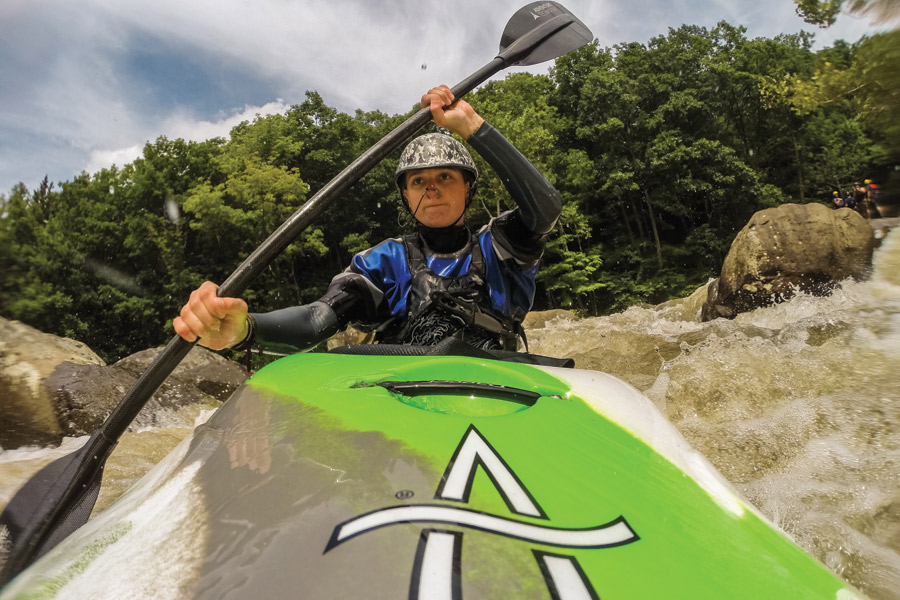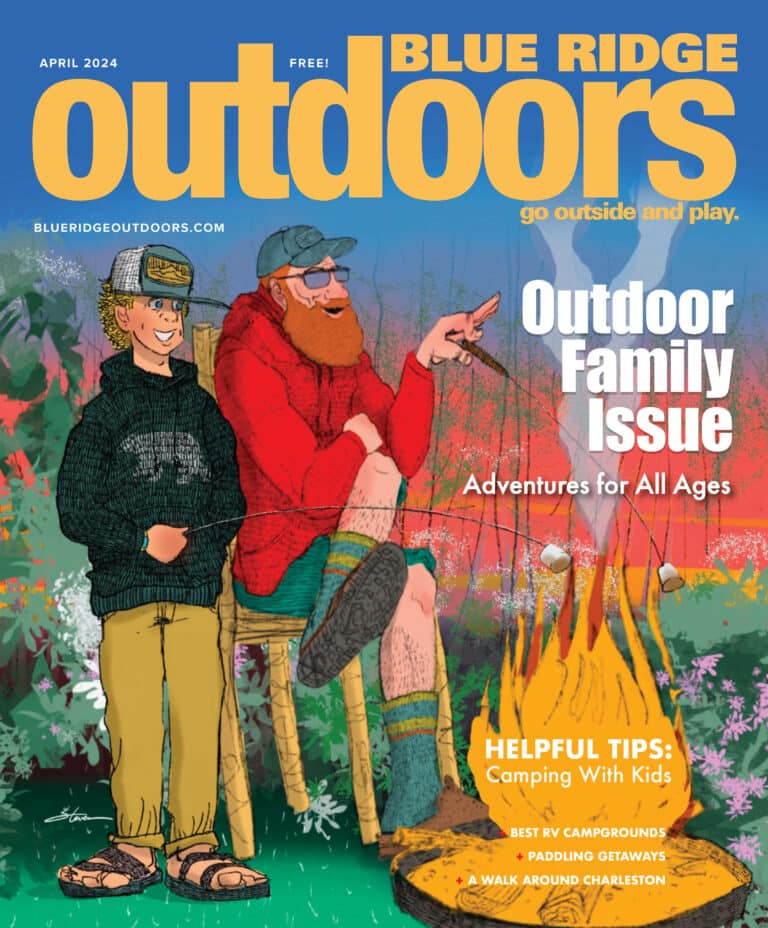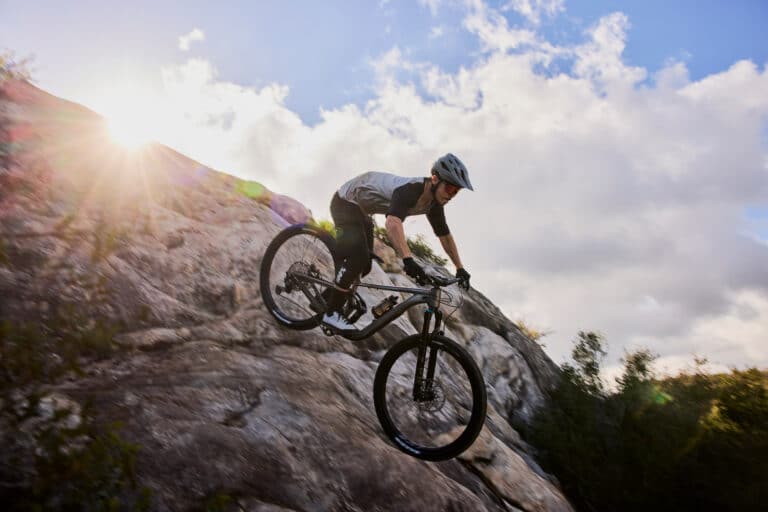The word ‘gratitude’ is fairly common in our everyday vocabulary. It’s a word we use to describe feelings of appreciation or thanks. Its root, which stems from the Latin word ‘gratus,’ implies something pleasing or agreeable for which you are grateful.
To me, that seems like a pretty flowery depiction of ‘gratitude.’ Sure, like most people, I’m grateful for my family and friends, for having clothes on my back, a roof (of sorts) over my head, food to eat, and money to pay those blasted student loans. But as backwards as it may sound, I’ve recently found myself also giving thanks for pain.
Allow me to explain.
The first time I remember wanting to kayak, I was an 18-year-old college freshman sitting in an inflatable duckie, waiting to put in on the upper section of the Russell Fork River.
“You’ve got the beer, so we won’t let anything happen to you,” one of the guys on the trip said, slapping me on the back.
I swallowed hard, looking at the cooler strapped down in my stern. The upper section is a mellow class II-III run, but for me, it would be my first taste of real whitewater. Just four months after that Russell Fork trip, I drove seven hours through the night to Indiana to buy my first kayak (a play boat and all the gear I’d need, found on BoaterTalk) for $500 cash.
Never mind that I had never sat in a playboat before. Never mind that I still didn’t have a roll. The day I returned from Indiana I immediately hopped on a trip to Tennessee’s Nolichucky Gorge and experienced what I imagine it feels like to almost drown. I swam three times, one of which was the entire length of Quarter Mile, a class IV rapid named for its length. During that swim in particular, I remember reaching a point where my body, so physically taxed from fighting the current, simply gave up. As I floated downstream beneath the surface of the water, I remember looking up at the sky and thinking, this is it.
Of course, that wasn’t it, for my life or my beatdowns. I’ve swum nearly every river I’ve ever paddled. I’ve had mild concussions, black eyes, gnarly bruises, and feelings of total defeat and despair. I’ve been green in the face and sick to my stomach with fear, at times wishing the takeout would magically appear downstream. But it’s all of that, and so much more, that draws me to the sport. It’s that discomfort for which I am grateful, but didn’t realize I was, until recently.
“When you choose to view your stress response as helpful, you create the biology of courage,” says health psychologist Kelly McGonigal in her 2013 TED Talk on the subject of “How to make stress your friend.”
I came across McGonigal’s TED Talk via a blog my friend shared, which spoke similarly on the benefits of discomfort. In her presentation, McGonigal proves that changing the way we think about stress can drastically affect our health – if we choose to believe that stress hurts us, it will. If, however, we decide to embrace that anxiety and recognize it as a tool by which our body has called upon to meet a challenge, then stress can actually do us a lot of good.
In fact, that change in attitude can affect us so much so that our normal physical reaction to stress (which involves increased heart rate and constricted blood vessels) can actually be altered so that the heart still beats heavily but the blood vessels stay relaxed. This, McGonigal says, is characteristic of the body during times of joy and courage.
“One thing we know for certain is that chasing meaning is better for your health than trying to avoid discomfort,” McGonigal says at the conclusion of her talk, “and so I would say that’s really the best way to make decisions, is go after what it is that creates meaning in your life and then trust yourself to handle the stress that follows.”
When I heard her say those final words, everything I had ever doubted about my passions suddenly fell into place. After every beatdown I took, before every rapid I’ve never seen, there was always a little voice in the back of my head asking the big question: why? Why do we sleep on the ground in the dead of winter when perfectly cozy beds sit empty? Why do we tape our bloodied fingers and blistered heels and press on? Why do we turn to peanut butter and jelly as sustenance, and the back of our cars as home, for a few days of climbing or paddling? Why do we put ourselves in these uncomfortable situations for no apparent reason?
It’s because these are the things that matter, that give meaning to our lives. The river is where I find purpose. It’s one of the few places that allows me to experience that balance between incompetence and confidence. Every bad line, every swim, every boof gone bad, isn’t a failure; it’s an unmet challenge. It is through these moments of discomfort that we dig deep, gain grit, and find that we are capable of much more than we believe.
And so, on that note, let’s allocate some of our gratitude this year to all of the freezing wet nights and broken bones, to the bear that found your food and the guidebook that leaped over the edge, to every time you found yourself in a pickle yet somehow still managed to find your way out.








